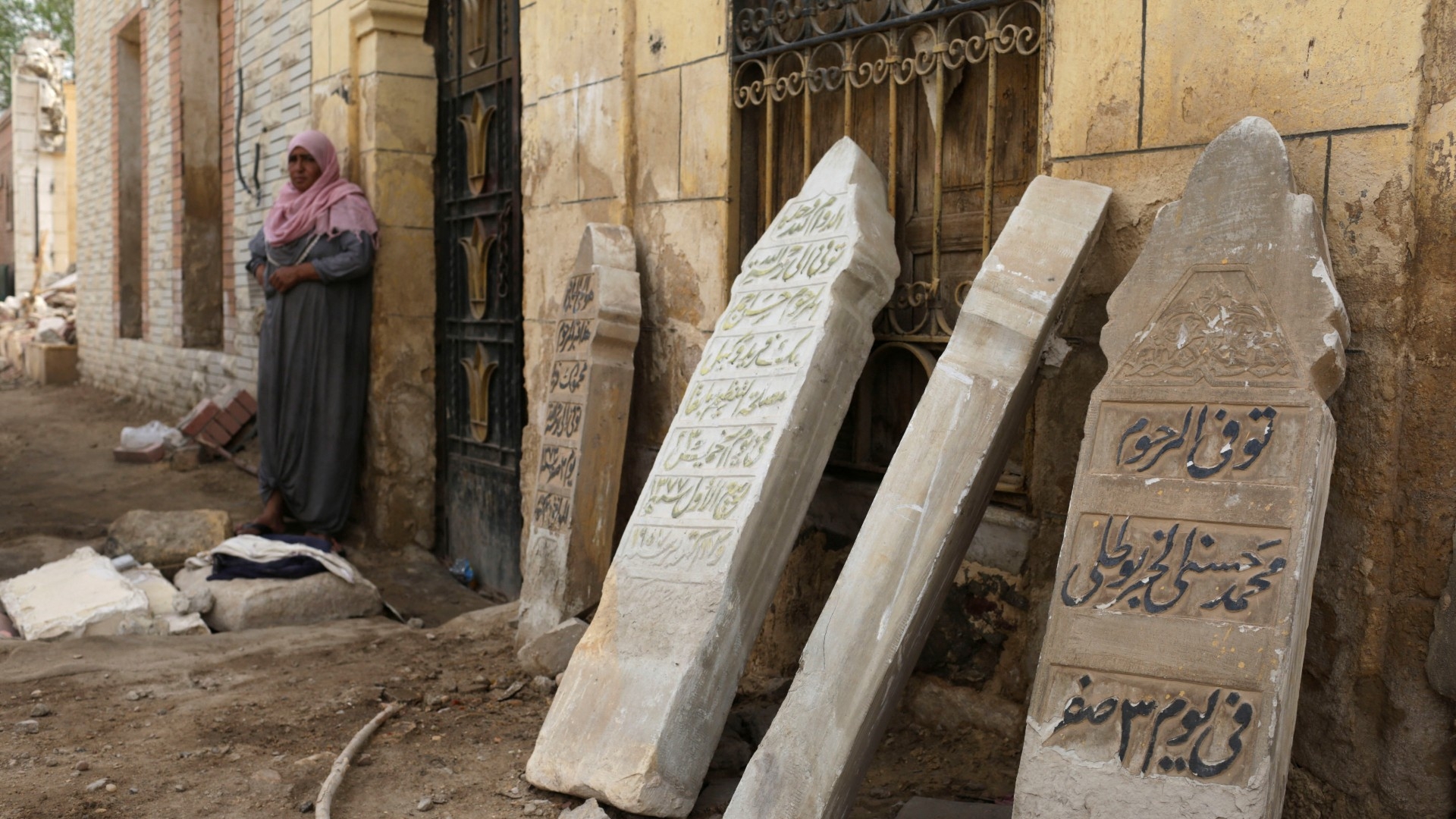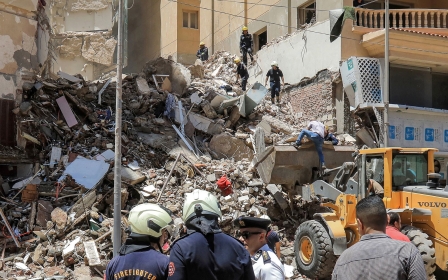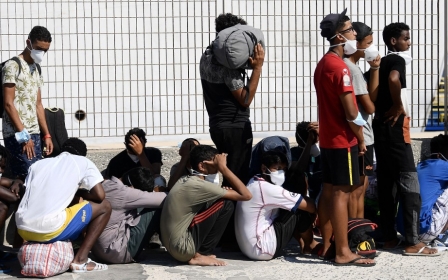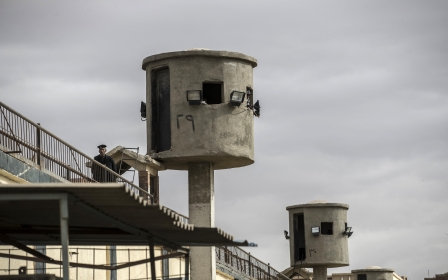Egypt's City of the Dead demolitions spark outcry and heritage concerns

The Egyptian government's move to demolish a historic sprawling cemetery in southern Cairo is drawing sharp criticism for prioritising road projects over cultural heritage preservation.
Since 2020, Cairo governorate authorities have been relocating thousands of human remains from a cemetery in the southern part of the Egyptian capital, including sections within the UNESCO-listed City of the Dead, a sprawling burial ground that holds the remains of prominent political leaders, military commanders, artists, and intellectuals, to the outskirts of Cairo's desert areas.
The primary objective is purportedly to preserve the integrity of these remains while also facilitating various infrastructure initiatives, such as the construction of roads and public parks.
Nonetheless, the move has sparked discontent among relatives of those buried in the site, who fear the severing of connections with their loved ones, and heritage experts, who express grave concerns about the potential loss of the historic site.
"The southern Cairo cemetery contains rare tombs that chronicle Egyptian history," Mustafa al-Sadek, a heritage specialist and the founder of the Facebook lobby group Safeguard Historic Cairo's Cemeteries, told Middle East Eye.
New MEE newsletter: Jerusalem Dispatch
Sign up to get the latest insights and analysis on Israel-Palestine, alongside Turkey Unpacked and other MEE newsletters
Sadek's group documents the historical and architectural value of the tombs of the area. He described the removal of the cemetery as a "crime".
The cemetery, divided by a number of different closely situated areas, is home to the graves of a large number of renowned Egyptian public figures, such as Ahmed Urabi, a popular 19th century political leader and resistance figure against British occupation, Queen Farida, the first wife of King Farouq, Egypt's last monarch before the officers' movement of 1952; and Imam al-Shafii, the founder of one of Sunni Islam's four schools of Islamic law, who died in 820.
'The government doesn't want to leave us anything, not even the memories of the dead'
- Osama Hamdi, schoolteacher
Some of the tombs of the cemetery have significant artistic value, with colourful marbles and numerous Islamic decorations and inscriptions.
"The decorations of some of these tombs were made by the finest artists and Arabic calligraphy experts of the time," Souhir Hawass, a professor of urban design at Cairo University, told MEE.
"These decorations reflect to a great deal the high artistic standards prevailing at the time," she added.
A water well that dates back to the days of the Mamluks, hundreds of years ago, was discovered in the area in early June as diggers went about their business of demolishing buildings as part of the planned project.
'Necessary upgrade'
The government says the transfer is part of a larger plan to restore the Islamic quarter of the Egyptian capital, the part of the city which includes time-honoured areas and buildings, including some that have been in place for hundreds of years.
These areas, among many others, include Fatimid Cairo and the al-Azhar mosque, the most important centre of Sunni Islamic learning that was constructed over a thousand years ago.
It also contains the Saladin Citadel, a medieval Islamic Cairo fortress that was constructed over 800 years ago to be the centre of rule and protect the city against foreign invasion.
The government says these important landmarks make it necessary for the area around them to be upgraded, including through the removal of parts of the cemetery that are no longer fit for use and the restoration of others that do not stand in the way of planned infrastructure projects.
"A special panel is now considering the best way to deal with the area and find solutions to its problems," Ibrahim Abdel Hadi, the deputy Cairo governor, told MEE.
"Some of the graves have already been damaged by underground water and others have reached an extreme state of deterioration," he added.
Egyptian Prime Minister Mustafa Madbouli toured the cemetery on 24 June, and entered some tombs, including Urabi's, and witnessed their poor condition. Some of the graves were full of underground water and others had been suffering from years of neglect.
"Some of the graves have reached such a poor condition that they are no longer fit for the burial of the dead," the prime minister told the media on the sidelines of his tour.
In an attempt to alleviate concerns surrounding the demolitions, the prime minister revealed during his tour of the cemetery last week that his government has constructed 20,000 graves on the desert outskirts of Cairo to accomodate the relocated remains. The new cemetery, he said, would contain a special quarter for deceased Egyptian celebrities, called the "Graves of the Glorious".
He declared that some parts of the old site would be turned into public parks, while others would be used in the implementation of road projects to end congestion in Cairo.
However, few people buy into the government's rhetoric.
Some are concerned that the government would get the remains of their loved ones out only to use the land of the cemetery to construct a new urban community and profit off the sales of property there.
Lending credence to such a view is the government's move to evacuate the nearby tannery area and construct a new compound in its stead, where flats are expected to sell for millions of Egyptian pounds.
Schoolteacher Osama Hamdi is one of these critics. His parents are buried in the southern Cairo cemetery, and he says he cannot imagine Egypt's current urban crush trampling on the grave of those dearest to him.
"Everybody knows that this land will be used for urban investment in the future," Hamdi told MEE. "The government doesn't want to leave us anything, not even the memories of the dead."
Middle East Eye delivers independent and unrivalled coverage and analysis of the Middle East, North Africa and beyond. To learn more about republishing this content and the associated fees, please fill out this form. More about MEE can be found here.





